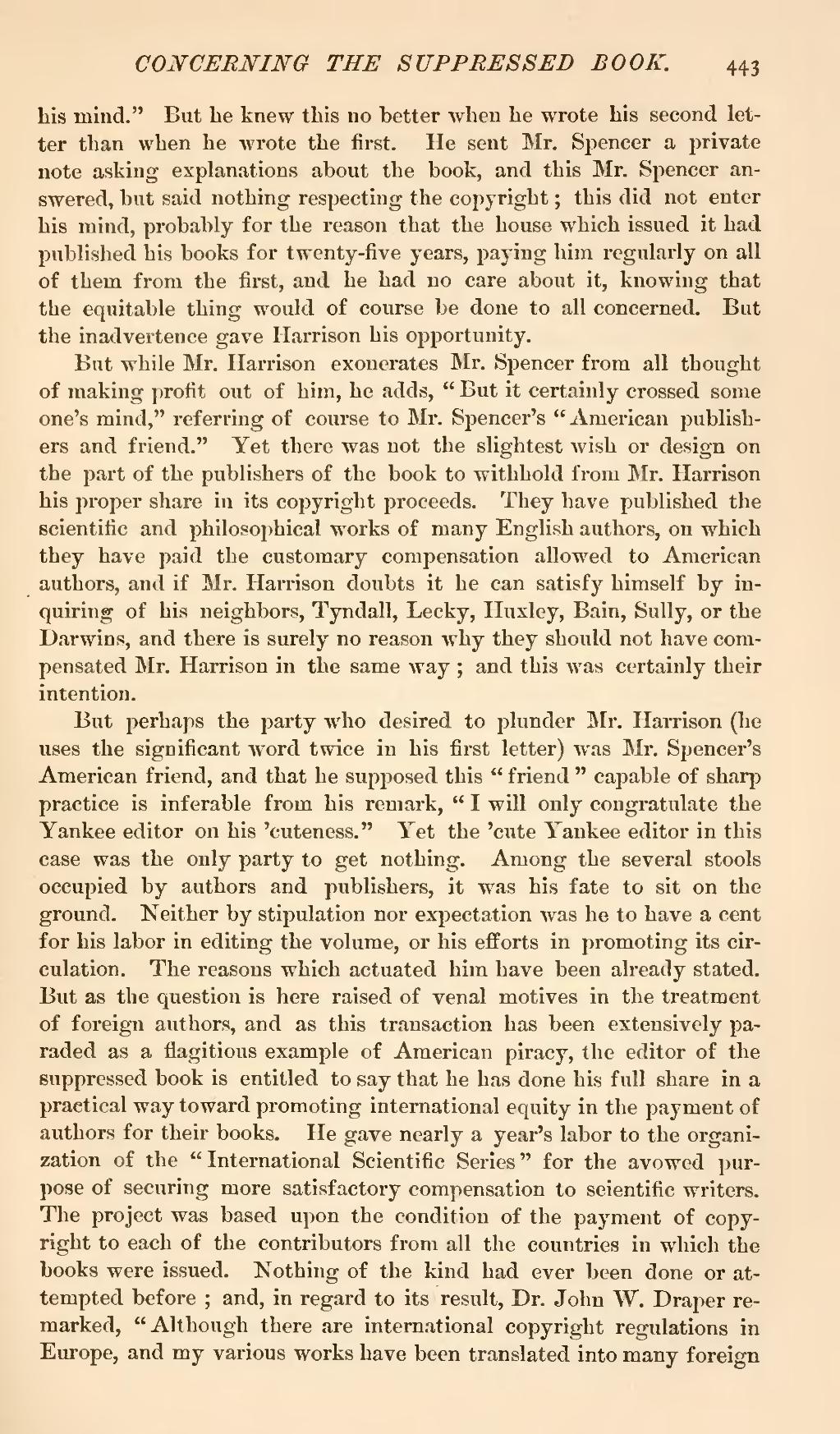his mind." But he knew this no better when he wrote his second letter than when he wrote the first. He sent Mr. Spencer a private note asking explanations about the book, and this Mr. Spencer answered, but said nothing respecting the copyright; this did not enter his mind, probably for the reason that the house which issued it had published his books for twenty-five years, paying him regularly on all of them from the first, and he had no care about it, knowing that the equitable thing would of course be done to all concerned. But the inadvertence gave Harrison his opportunity.
But while Mr. Harrison exonerates Mr. Spencer from all thought of making profit out of him, he adds, "But it certainly crossed some one's mind," referring of course to Mr. Spencer's "American publishers and friend." Yet there was not the slightest wish or design on the part of the publishers of the book to withhold from Mr. Harrison his proper share in its copyright proceeds. They have published the scientific and philosophical works of many English authors, on which they have paid the customary compensation allowed to American authors, and if Mr. Harrison doubts it he can satisfy himself by inquiring of his neighbors, Tyndall, Lecky, Huxley, Bain, Sully, or the Darwin s, and there is surely no reason why they should not have compensated Mr. Harrison in the same way; and this was certainly their intention.
But perhaps the party who desired to plunder Mr. Harrison (he uses the significant word twice in his first letter) was Mr. Spencer's American friend, and that he supposed this "friend" capable of sharp practice is inferable from his remark, "I will only congratulate the Yankee editor on his 'cuteness." Yet the 'cute Yankee editor in this case was the only party to get nothing. Among the several stools occupied by authors and publishers, it was his fate to sit on the ground. Neither by stipulation nor expectation was he to have a cent for his labor in editing the volume, or his efforts in promoting its circulation. The reasons which actuated him have been already stated. But as the question is here raised of venal motives in the treatment of foreign authors, and as this transaction has been extensively paraded as a flagitious example of American piracy, the editor of the suppressed book is entitled to say that he has done his full share in a practical way toward promoting international equity in the payment of authors for their books. He gave nearly a year's labor to the organization of the "International Scientific Series" for the avowed purpose of securing more satisfactory compensation to scientific writers. The project was based upon the condition of the payment of copyright to each of the contributors from all the countries in which the books were issued. Nothing of the kind had ever been done or attempted before; and, in regard to its result, Dr. John W. Draper remarked, "Although there are international copyright regulations in Europe, and my various works have been translated into many foreign

